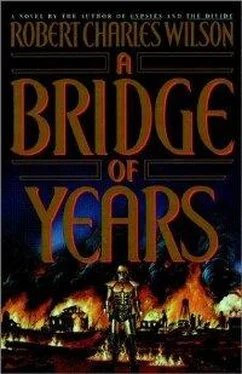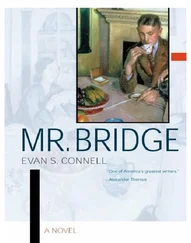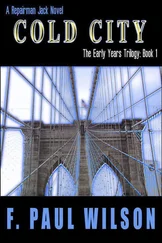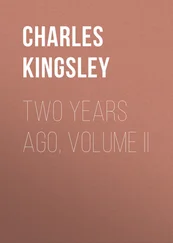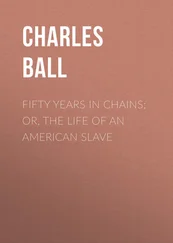A Bridge of Years
by Robert Charles Wilson
Woe is me, woe is me!
The acorn’s not yet fallen from the tree
That’s to grow the wood
That’s to make the cradle
That’s to rock the babe
That’s to grow a man
That’s to lay me to my rest.
—Anonymous, “The Ghost’s Song”
Soon, the time traveler would face the necessity of his own death.
He had not taken that decision, however, or even begun to contemplate its necessity, on the cool spring morning when Billy Gargullo burst through the kitchen door into the back yard, heavily armed and golden in his armor.
The time traveler—whose name was Ben Collier—had begun the slow, pleasant labor of laying out a garden at the back of the lawn. He had hammered down stakes and marked the borders with binding twine. Next to this patch of grass and weed he had placed a shovel, a rake, and a tilling device called a “garden weasel,” which he had found in a Home Hardware store in the Harbor Mall. Ben was looking forward to the adventure of the garden. He had never gardened before. He understood the fundamentals but wasn’t certain what might thrive in this sunny, damp patch of soil. Therefore he had purchased a random selection of seeds from the hardware store rotary rack, including corn, radishes, sunflowers, and night-blooming aloe. In his right hand he held a packet of morning glories, reserved for a space by the fence, where they’d have something to climb on.
He had lived alone on this property—two acres of uncultivated woodland and a three-bedroom frame house—for fifteen years now. A tiny chunk of time by any reasonable scale, but substantial when you lived it in sequence. He had arrived at this outpost in August of the year 1964 and since then he had not held a conversation more prolonged than the necessary hellos and thank yous directed at store clerks and delivery people. Occasionally someone would move into the house down the road, would climb the long hill to introduce himself, and the time traveler would be friendly in return … but there was something in his manner that discouraged a second visit. He was an ordinary seeming, round-faced, genial young man (not as young as he seemed, of course; quite the contrary) who smiled and wore Levi’s and check shirts and short hair and who, on recollection, would remind you of something superficially pleasant but somehow disturbing: a pool of water in a forest clearing, say, where something old and strange might at any moment rise to the surface.
He had lived alone all this time. For Ben, it was not an especial hardship. He had been chosen for his solitary nature and he possessed hidden resources in advance of contemporary technology: slave mnemonics, tactile memory, a population of tiny cybernetics. He wasn’t lonely. Nevertheless he was, in a very real sense, alone. He was a careful and dedicated custodian; but the serenity of the house and the property occasionally seduced him into lapses of attention. Sometimes he caught himself daydreaming.
Now, for instance. Peering into this deep tangle of weeds, he imagined a garden. Gardening is a kind of time travel, he thought. One invested labor in the expectation of an altered future. Blank soil yielding flowers. A trick of time and water and nitrogen and human hands. These seeds contained their own blooms.
He looked at the package in his hand. Heavenly Blue, it said. The picture was impossibly gaudy, a riot of turquoise and purple Technicolor. As a species, the morning glory had been endangered for years before his birth. He imagined these flowers rising along the old, fragrant cedar planks of the fence (cedar: another casualty). He imagined their blooms in the summer sunlight. He would step out onto the back porch in the last glimmer of a hot, dry day, and there they would be, laced into the wood like bright blue filigree. In the future.
He was gazing at the package—filled with these thoughts—when the marauder burst through the kitchen door.
He had had some warning, subliminal and brief, enough to start him turning toward the house. He felt it as a disturbance among the cybernetics, and then as their sudden silence.
The marauder was dressed in what Ben recognized as military armor of the late twenty-first century, an armor rooted deep into the body, a prosthetic armor tied into the nervous system. The marauder would be very fast, very deadly.
Ben was not without his own augmentation. As soon as the peripheral image registered, emergency auxiliaries began to operate. He ducked into the meager cover of a lilac bush growing at the edge of the lawn, some few feet from the forest. He had time to wish the lilacs were in bloom.
He had time for a number of thoughts. His reflexes were heightened to the inherent limits of nerve and muscle. His awareness was swift and effortless. Events slowed to a crawl.
He looked at the intruder. What he saw was a blur of golden movement, the momentary shadow of a wrist weapon poised and aimed. Ben couldn’t guess what had brought this man here, but his hostility was obvious, the threat unquestionable.
Ben was weaponless. There were weapons hidden in the house, but he would have to pass by the marauder to reach them.
He stood up and dodged left, beginning a zigzag course that would take him to the side of the house and then around to the front, a window or a door there. As he stood, the marauder fired his weapon.
It was a primitive but utterly lethal beam weapon, common for its era. Ben recalled photographs of bodies burned and dismembered beyond recognition, on a battlefield years from here. As he stood, the beam scorched air inches from his head; he imagined he could taste the bright, sour ionization.
Still, the right sort of armor would have protected him. He possessed such an item—in the house.
This was a sustaining thought; but the house was too far, the lawn an unprotected killing ground. He glimpsed the marauder crouching to take aim; he ducked and rolled forward, too late. The beam intersected his left leg and severed it under the knee.
He felt a brief, terrible burst of pain … then numbness as the damaged nerves shut themselves down. Crippled, Ben fetched up against a birch stump projecting from the grass. He had been meaning to pull that stump for years now. The severed portion of his leg—now a barely recognizable tube of flayed meat—rolled past him. Absurdly, he wanted to pull it back to himself. But the leg was gone now—past recovery. He would need a new one.
He felt briefly dizzy as opened arteries clamped themselves shut. The gushing of blood from the blackened wound slowed to a trickle.
Clever programs had been written into the free sequences of his DNA. For Ben, this was not a deadly injury. A grave impediment, however, it most certainly was.
He was helpless here. The birch stump was no cover at all and the marauder was primed for another shot. Ben lurched forward, grinding his bloody knee-end into the dirt, hopped two paces and then rolled again in a drunken tumble that might have succeeded if the marauder had been aiming by line of sight; but the weapon was equipped with a target-recognition device and the beam cut twice across Ben’s body—first severing his right hand at the wrist and then slicing deep into his abdominal cavity. Blood and flame flowered across his shirt, which he had bought at the Sears in the Harbor Mall.
Now Ben began to consider dying.
Probably it was unavoidable. He understood how profoundly damaged he was. He experienced waves of dizziness as major arteries locked or dilated in a futile attempt to maintain blood pressure. Numbness spread upward from his hip to his collarbone: it was like slipping into a warm bath. He lay on the grass where his momentum had carried him, loose-jointed and faint.
Читать дальше
